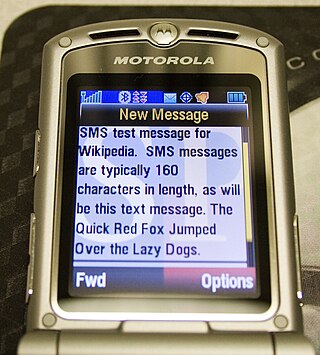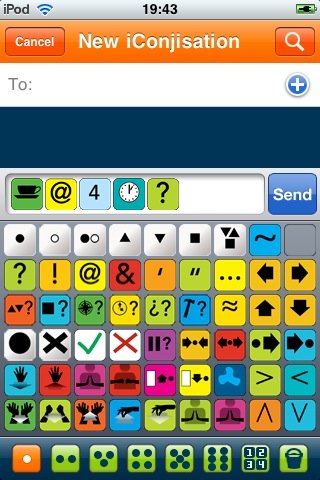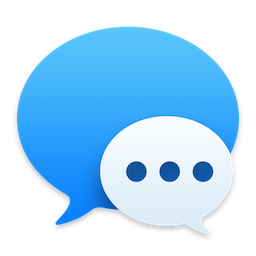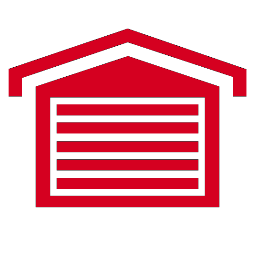
Short Message/Messaging Service, commonly abbreviated as SMS, is a text messaging service component of most telephone, Internet and mobile device systems. It uses standardized communication protocols that let mobile devices exchange short text messages. An intermediary service can facilitate a text-to-voice conversion to be sent to landlines.

Instant messaging (IM) technology is a type of online chat allowing real-time text transmission over the Internet or another computer network. Messages are typically transmitted between two or more parties, when each user inputs text and triggers a transmission to the recipient(s), who are all connected on a common network. It differs from email in that conversations over instant messaging happen in real-time. Most modern IM applications use push technology and also add other features such as emojis, file transfer, chatbots, voice over IP, or video chat capabilities.

Text messaging, or texting, is the act of composing and sending electronic messages, typically consisting of alphabetic and numeric characters, between two or more users of mobile devices, desktops/laptops, or another type of compatible computer. Text messages may be sent over a cellular network or may also be sent via satellite or Internet connection.

File Explorer, previously known as and still sometimes called Windows Explorer, is a file manager application and default desktop environment that is included with releases of the Microsoft Windows operating system from Windows 95 onwards. It provides a graphical user interface for accessing the file systems. It is also the component of the operating system that presents many user interface items on the screen such as the taskbar and desktop. Controlling the computer is possible without File Explorer running. After the name change that was introduced in Windows 8, Windows Explorer name can still be seen when you look for it in the Windows Task Manager.

Geotagging, or GeoTagging, is the process of adding geographical identification metadata to various media such as a geotagged photograph or video, websites, SMS messages, QR Codes or RSS feeds and is a form of geospatial metadata. This data usually consists of latitude and longitude coordinates, though they can also include altitude, bearing, distance, accuracy data, and place names, and perhaps a time stamp.
Rake is a software task management and build automation tool created by Jim Weirich. It allows the user to specify tasks and describe dependencies as well as to group tasks in a namespace. It is similar to SCons and Make. It's written in the Ruby programming language and the Rakefiles use Ruby syntax. Rake uses Ruby's anonymous function blocks to define various tasks, allowing the use of Ruby syntax. It has a library of common tasks: for example, functions to do common file-manipulation tasks and a library to remove compiled files. Like Make, Rake can also synthesize tasks based on patterns: for example, automatically building a file compilation task based on filename patterns. Rake is now part of the standard library of Ruby from version 1.9 onward.
Mobile marketing is a multi-channel online marketing technique focused at reaching a specific audience on their smartphones, feature phones, tablets, or any other related devices through websites, e-mail, SMS and MMS, social media, or mobile applications. Mobile marketing can provide customers with time and location sensitive, personalized information that promotes goods, services, appointment reminders and ideas. In a more theoretical manner, academic Andreas Kaplan defines mobile marketing as "any marketing activity conducted through a ubiquitous network to which consumers are constantly connected using a personal mobile device".

Google Calendar is a time-management and scheduling calendar service developed by Google. It was created by Mike Samuel as part of his 20% project at Google. It became available in beta release April 13, 2006, and in general release in July 2009, on the web and as mobile apps for the Android and iOS platforms.
HCL Connections is a Web 2.0 enterprise social software application developed originally by IBM and acquired by HCL Technologies in July 2019. Connections is an enterprise-collaboration platform which aims to helps teams work more efficiently. Connections is part of HCL collaboration suite which also includes Notes / Domino, Sametime, Portal and Connections.
Skype offers a number of features based around calling, messaging, video chat, and file and screen sharing. The following is a partial list of Skype's features:
Released during Q3 2007 for T-Mobile in the US, the Samsung Blast (SGH-T729) slider features a double-tap QWERTY keypad, music player, stereo bluetooth and a MicroSD slot.
Google Latitude was a location-aware feature of Google Maps, developed by Google as a successor to its earlier SMS-based service Dodgeball. Latitude allowed a mobile phone user to allow certain people to view their current location. Via their own Google Account, the user's cell phone location was mapped on Google Maps. The user could control the accuracy and details of what each of the other users can see — an exact location could be allowed, or it could be limited to identifying the city only. For privacy, it could also be turned off by the user, or a location could be manually entered. Users had to explicitly opt into Latitude and were only able to see the location of those friends who had decided to share their location with them.

Aldiko is an e-book reader application for the Android and iOS operating systems. It supports the EPUB format for digital publications and incorporates facilities for browsing online catalogs on thousands of books and downloading them directly into the user's personal library. The application features a bookshelf-like user interface that lets user navigate their collection of eBooks. It also provides a customizable reading experience through configurable font and background color, font size and type, margin size, display brightness, page turn mode, etc. Additionally, the application allows users to import their own books to read them on the go. Aldiko does not support font embedding.

The geo URI scheme is a Uniform Resource Identifier (URI) scheme defined by the Internet Engineering Task Force's RFC 5870 as:
a Uniform Resource Identifier (URI) for geographic locations using the 'geo' scheme name. A 'geo' URI identifies a physical location in a two- or three-dimensional coordinate reference system in a compact, simple, human-readable, and protocol-independent way.

iConji is a free pictographic communication system based on an open, visual vocabulary of characters with built-in translations for most major languages.

iMessage is an instant messaging service developed by Apple Inc. and launched in 2011. iMessage functions exclusively on Apple platforms: macOS, iOS, iPadOS, and watchOS.

Messages is an text messaging software application developed by Apple Inc. for its macOS, iOS, iPadOS, and watchOS operating systems.

Upptalk was a proprietary voice-over-IP service and software application that provided mobile phone numbers in the cloud and allows users to call or text any phone for free whether or not the device receiving the calls and texts has the Yuilop application. The service was discontinued in 2017 and even its domain was abandoned.

The Microsoft Garage is a Microsoft program that encourages employees to work on projects about which they are passionate, despite having no relation to their primary function within the company. Employees from all divisions of Microsoft are free to take part in Microsoft Garage activities and small-scale innovation projects. The Microsoft Garage is a global program with locations on the main campus in Redmond, Washington, and several others spread all over the world, and a website that launched in October 2014 to share experimental projects with customers.
Comparison of user features of messaging platforms refers to a comparison of all the various user features of various electronic instant messaging platforms. This includes a wide variety of resources; it includes standalone apps, platforms within websites, computer software, and various internal functions available on specific devices, such as iMessage for iPhones.












